SUMMARY
This is AI generated summarization, which may have errors. For context, always refer to the full article.

Solicitor General Jose Calida evaded anti-terror law interpellations when oral arguments resumed in the Supreme Court on Tuesday, April 27, leaving his assistant solicitors general (ASG) to trip over some questions involving the tricky powers of arrest and surveillance.

Calida, who takes pride in a spotless winning streak in the Supreme Court, delivered an hour-long opening statement before ceding the virtual microphone to ASGs Raymund Rigodon and Marissa Dela Cruz-Galandines.
Tuesday’s session only had time for Associate Justice Rosmari Carandang, the case lead, where she grilled Rigodon and Galandines on the most contentious portions of the law.
Carandang asked Galandines what the personal knowledge was of the anti-terror council or ATC for it to be able to authorize an arrest and detention without a judicial warrant.
Section 29 of the law empowers the ATC, composed only of Cabinet members, to authorize warrantless arrests and detentions based only on the council’s determination of probable cause. Galandines earlier said this probable cause was based on personal knowledge.
Arrest and detention
Scrutinizing what the personal knowledge of cabinet members would be on suspected terrorists, Galandines insisted that the council’s power was only to authorize detention beyond 3 days, not warrantless arrest.
Carandang pointed out that “authority to detain is equivalent to authority of arrest” as one cannot detain without arresting first.
When Carandang said, “I think you’re having difficulty answering this,” Galandines said the ATC only participates in the detention, but “sa pag-aresto wala pong kukunin sa ATC (when arresting, nothing is to be obtained from the ATC).”
Both the law and the Implementing Rules and Regulations (IRR) say that the ATC must give its written authority to take a person in custody. Galandines insisted that arrest and detention were two separate things.
“The law enforcers would arrest by virtue of a warrantless arrest, following the guidelines set forth by Rule 113 of the Rules of Court… then they would have to secure authorization from the ATC to detain the person arrested beyond the period contemplated by Article 125 of the Revised Penal Code,” said Galandines.
“That’s the position of the government? That is not what is written in the law,” said Carandang, stopping the interpellation on that topic and ordering Galandines to expound on it in their memorandum.
Rule 113 of the Rules of Court provided 3 grounds for a valid warrantless arrest. These were: caught in the act, probable cause to believe a crime has just been committed, a fugitive. Article 125 of the Revised Penal Code, meanwhile, sets a maximum 36-hour detention before bringing a suspect to court.
The anti-terror law allows detention of as long as 24 days before bringing a suspect to court.
During his interpellation, Rigodon was asked to enumerate what safeguards under the Human Security Act were removed in the anti-terror law. Rigodon could only name one – the clause on automatic compensation of P500,000 per day of wrongful detention.
“Is that it?” Carandang asked in Filipino but Rigodon could not answer.
“There are several safeguards in the Human Security Act which were deleted in the anti-terrorism law. So you’re not aware of this?” Carandang said, before moving on to the next topic.

Surveillance
Surveillance is a power of the government under the anti-terror law, but it needed an order from the Court of Appeals (CA).
When Carandang asked what would the standard of the CA would be in issuing surveillance orders, Galandines said it was “probable cause based on personal knowledge.”
“Is that a high standard or a low standard of probable cause?” Carandang asked.
“Maybe it’s a low standard,” said Galandines.
“Are you sure it is a low standard? Put that in your memorandum as the Court would like to see what probable cause is as far as the government is concerned,” said Carandang.
Earlier, Galandines was made to admit that the government can conduct an “informal surveillance” even without getting first the formal order from the CA.
“Is the government not violating any rules on right to privacy because they are government agents conducting informal surveillance?” Carandang asked.
“We submit your honor that this is a matter of national security,” said Galandines.
When Carandang probed further if a CA surveillance order should be like a regular search warrant where the information sought should be specific, Galandines said it was classified information known only to the ATC.
Carandang asked if the government would be amenable to the Supreme Court promulgating rules on surveillance orders. “The government has no objection,” said Galandines.
This back-and-forth on whether the Supreme Court could intervene prompted Carandang to ask Galandines several times if the ASG was sure of her answers, and whether she was not “compromising government position.”
Designation
Designation was a distinct power under the law where the ATC could tag a person a terrorist without going through the court process of proscription. The designation proceedings are secret, and the only time subjects are made known is when their names are published on the website.
The first to be designated terrorists was the Communist Party of the Philippines–New Peoples’ Army (CPP-NPA).
Carandang asked what the designation’s consequence would be. When Galandines answered it was only for the purpose of freezing assets, Carandang asked her if she was sure.
“No arrest after designation, are you sure of that?” Carandang asked.
“It is without prejudice to the eventual filing of an action for proscription,” Galandines finally said.
That designation may lead to arrest, even perpetual arrests, has been the fear raised in some petitions.
Although the government would insist that designation was only for the purpose of freezing assets, limiting it to only just that could be seen as limiting themselves to what it could to, for example, designated communists.
Galandines insisted that designation was not encroaching on judicial power, as she called it administrative proceedings that are separate from proscription.
In the earlier session, Associate Justice Benjamin Caguioa said “it seems to me designation already achieves the purpose of proscription.”
In one of the memorable exchanges of the entire proceedings, Caguioa said some of the ATC’s powers under the law are almost like judicial powers.
“If it walks like a duck and quacks like a duck, it must be a duck,” Caguioa said.
Day 6 of the anti-terror law oral arguments would be on May 4.
– Rappler.com
Add a comment
How does this make you feel?
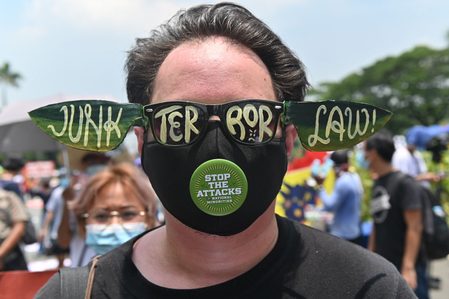

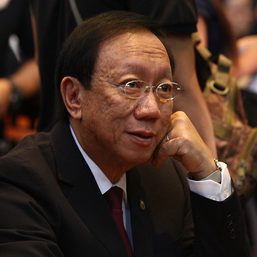

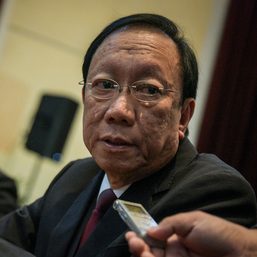

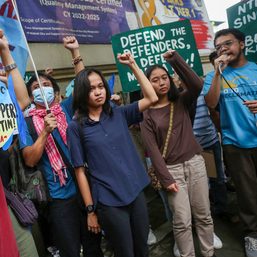
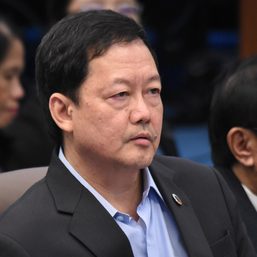

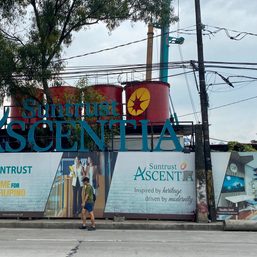



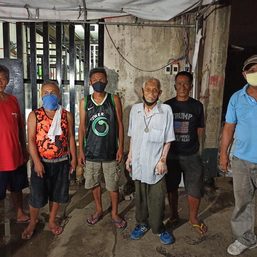




There are no comments yet. Add your comment to start the conversation.